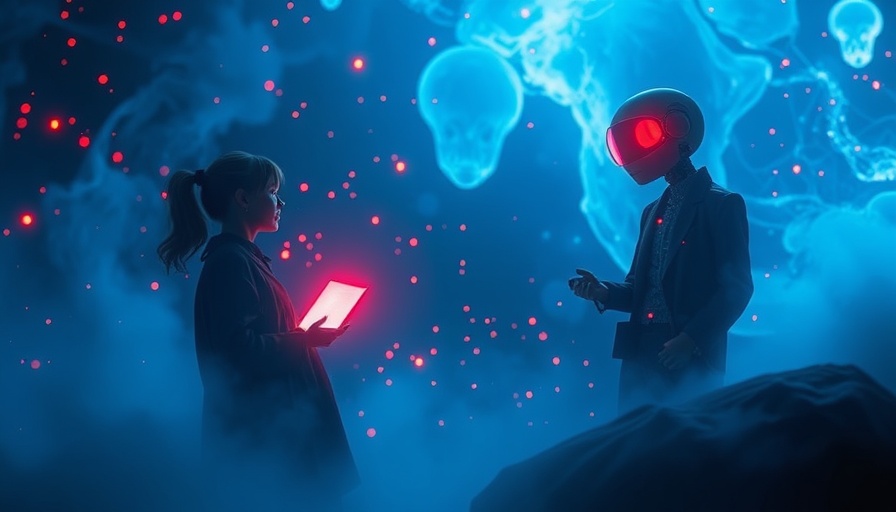
Honoring Human Creativity in a World Dominated by AI
In an age where artificial intelligence has made remarkable strides in generating creative content, the ongoing debate surrounding the essence of storytelling has taken a new dimension. In a thought-provoking piece, Jeanette Winterson celebrates AI's potential within the literary sphere, yet she overlooks the critical importance of human imagination and experience in creating narratives that resonate deeply with audiences. As AI-generated stories grow in prevalence, it raises an unsettling question: Are we sidelining human storytellers in favor of technological ease?
The Unique Value of Human Storytelling
At the heart of storytelling is a profoundly human experience that AI simply cannot replicate. Humans infuse their writing with emotions, cultural nuances, and personal histories that enrich narratives at levels AI algorithms cannot mimic. While AI can straddle a semblance of creativity through data patterns, it cannot generate the intrinsic emotional depth that comes from lived experiences. This relinquishing of human creativity to machines, if left unchecked, could diminish the diversity of voices that literature has traditionally celebrated.
Echoes from the Creative Community
Writers and critics echo similar sentiments regarding the implications of AI in creative industries. Henry Futcher poignantly raises the concern that prioritizing AI-generated work could hinder new talents from emerging. He challenges platforms like The Guardian to consider how frequently human-authored work gets prominent publication space compared to AI-generated pieces. His call for a revival of human stories speaks to an urgency felt across the literary community, which worries that AI might overshadow emerging writers seeking platforms to express their unique narratives.
Exploring AI's Role in Creativity
Contrasting opinions from within the creative community provide a nuanced understanding of AI's potential role in fostering creativity. Graham Mort, an authority in creative writing, embraces the idea that AI can mirror human experiences, thus providing new ways to explore what it means to be ‘other’ in a digital landscape. He suggests that AI could serve as a tool for inspiration rather than a replacement for human storytellers. This perspective invites readers to re-envision AI not merely as competition but as a possible collaborator that could enrich human storytelling.
Future Directions: Integrating AI and Human Authorship
Looking forward, the challenge lies in balancing the capabilities of AI with the irreplaceable value of human authorship. Future applications of AI in literature may benefit from a collaborative approach, wherein humans guide the creative processes of machines. This strategy not only preserves the diversity of literary voices but also harnesses the analytical power of AI to craft compelling narratives. Innovation within the art of storytelling could allow for a symbiotic relationship where AI supplements human creativity rather than replacing it.
Decisions Writers Can Make in This Changing Landscape
As the landscape evolves, writers face pivotal choices regarding their approaches to storytelling. Embracing AI as an assistive tool rather than a standalone creator can allow authors to leverage technology to enhance their own voices. This mode of operation advocates for a future where human qualities of empathy and emotional insight remain central to narrative crafting, reaffirming the place of human experience at the heart of storytelling.
In summation, while AI technology is reshaping landscapes across various creative fields, it should complement, not replace, the rich tapestry of human storytelling. Writers, critics, and audiences must remain vigilant in their commitment to uplift human narratives, ensuring that the stories that matter to them continue to flourish amid rapid technological advancement.
 Add Row
Add Row  Add
Add 




 Add Row
Add Row  Add
Add 

Write A Comment